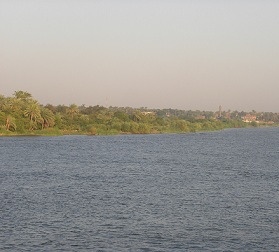Shafik Gabr: timing may now be right to push forward with 2002 Arab League Peace Initiative
CAIRO: Entering its fourth year, the Arab Business Council (ABC) is finally beginning to earn respect. Although made up of top business leaders from across the region, the organization has struggled since its inception to get the attention of the region s political leaders holding the keys to reforms it proposed.
But perhaps out of necessity, rather than choice, the politicians have recently begun paying attention to ABC. The organization s annual competitiveness report, ranking Arab states on ease of doing business and implementation of investment attraction policies, is now a hot topic in regional investment and trade conferences. ABC s meetings with organizations such as the G-8 Group and Arab League have also earned it a spot on the international business scene.
That s exactly what Arab business needed, ABC Chairman Shafik Gabr told The Daily Star Egypt in an exclusive interview. When the organization first convened in late 2003, the status and outlook for Arab business internationally were simply dismal, he said. The first priority, he added, was to establish a unified agenda.
The agendas of business communities across the Arab World are not the same. The Arab world is not homogenous, Gabr said. Therefore, it required a lot of time to come together as a business community and have one agenda.
In 2005, the organization published its first list of recommendations for economic reform. The list came out as ABC gained more visibility, having two of its members earn ministerial seats in two prominent Arab Ministries of Trade: Rachid Mohamed Rachid in Egypt and Sharif Zoobi in Jordan.
With the General Arab Free Trade Agreement (GAFTA), signed in Jan. 2005 by 17 of 22 Arab states, still largely ineffective, ABC is reaching out to Arab Trade Ministers to expedite the removal of trade barriers. Inter-Arab trade in 2005 totalled about $50 billion, according to Arab League figures. The value represents less than 10 percent of trade with non-Arab countries.
The political will is not there, Gabr said. You need to have the political will to be able to achieve [free trade]. We came up with the idea of free trade before Europe. And look what happened; now Europe has free trade, they have one currency, and we don t.
But progress has been made, Gabr added. The council has grown to include 89 members from 16 countries; the Arab League has agreed to host meetings between the council and Arab trade ministers; and governments across the region are beginning to realize the importance of reform to future economic sustainability.
Gabr said ABC is now working to bring together six or seven countries to agree on implementing gradual, but expedited economic liberalization instead of waiting for the consensus of all Arab countries. The consequences of not creating a strong Arab economy based on liberalization, Gabr added, can be devastating.
This region, I believe, has lost 50 years of its history, and that s sad, Gabr said. And the worst is this: if we continue on this path, I believe this part of the world can literally lose out. I mean if we look into the future, there will be societies which are genetically rich and technologically advanced and societies that are going to be normal. The gap will no longer be between rich and poor. The gap is going to be so big that those advanced societies will be very integrated and we re going to be [left behind]. And I do not want that to happen.
Some of the countries where governments and businesses have signed on to ABC s reform agenda include Egypt, Kuwait, Bahrain, UAE, Jordan and Morocco, with Syria slowly joining the pack. In direct reference to Egypt, Gabr said the past two years have yielded significant reforms, as shown statistically, but more needs to be done to change the perception of the business community of Egypt as an unfriendly business destination.
We ve reached $5 or $6 billion in investment in the past couple of years. That s great. I m not denying the achievements of the past two years, Gabr said. But I m much more ambitious that we can arrive at $15 to $20 billion if we continue to enhance the decisions that have taken place to open up, plus ensure your government institutions are implementing them.
Last week ABC wrapped up its third annual meeting where it adopted the 2002 Arab League Peace Initiative calling for the recognition of Israel in return for Palestinian Statehood along the 1967 borders and return of the Golan Heights. Gabr said the organization s venture into international politics became necessary because regional conflict continues to hinder development and trade alike in Arab States. Gabr said his organization is looking to work with Arab governments to push the agreement forward as part of a comprehensive regional peace plan.
You can t have trade with countries when they are sanctioned. You can t have trade with countries when there is instability and conflict, said Gabr. We are very concerned that the political leaders have strong solutions for conflicts on the table but are not pushing hard enough. Maybe the timing was not right [for the 2002 Peace Initiative], so maybe [Israel] should look now. It s all about timing and opportunity.

